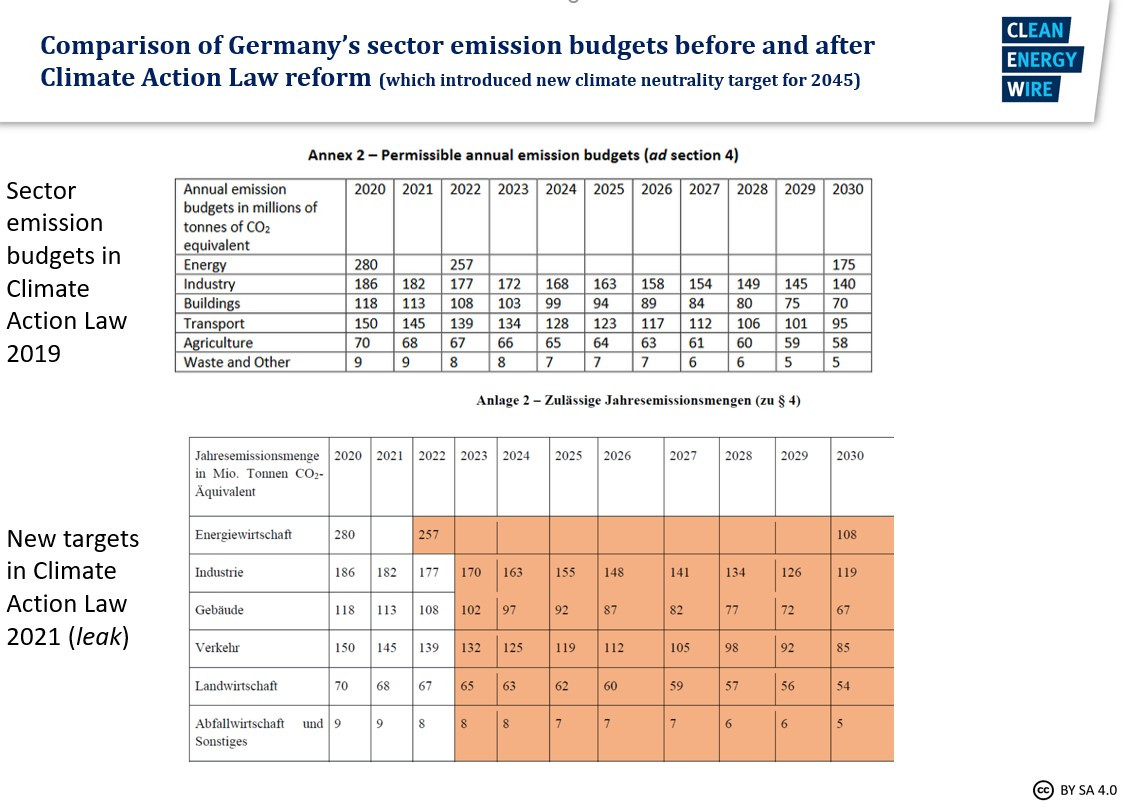Energy industry to shoulder bulk of additional German emissions reduction by 2030
Clean Energy Wire / Spiegel
The German energy industry will have to shoulder the bulk of additional emissions reduction by 2030, according to a draft amendment to the climate law reported by several media, including Spiegel. The draft is to implement the government's agreement to raise Germany's climate target for 2030. Instead of 175 million tonnes CO2 equivalent – the current target – it will only be allowed to emit 108 million tonnes. Industry is supposed to reduce emissions to 119 million tonnes (current target: 140 mln t). All targets would be preliminary and depend on how the EU intends to implement its more ambitious 2030 climate target, writes Spiegel.
The German government has agreed to aim for climate neutrality as early as 2045, pulling forward its previous target by five years as part of more ambitious plans to cut greenhouse gases. In a reform to be presented next week, the government will also propose to reduce emissions by 65 percent by 2030 (from the current goal of 55%) and introduce a new target of an 88 percent reduction by 2040. The move followed a landmark climate ruling from Germany’s top court, which had catapulted the issue to the top of the political debate as the government coalition partners shifted into election campaign mode.
German industry criticises “hectic tightening of national climate targets”
German industry association BDI has criticised German government plans to increase the national climate targets following a landmark ruling by the Constitutional Court. “The hectic tightening of national climate targets increases uncertainty for business and consumers,” said BDI president Siegfried Russwurm, adding that the industry is concerned about how they could be implemented in a competitive way. “It is difficult to understand on what basis the governing parties have so spontaneously come to the conclusion that climate neutrality can already be achieved in 2045 instead of 2050.” Russwurm criticised a lack of “concept, strategy and realistic planning” at national level, and called for joint climate action internationally.
Renewables industry association BEE welcomed the higher targets, but said that climate policy measures had to be adapted quickly now. As the energy industry would be responsible for the largest part of emissions reduction, renewables had to be expanded to supply 77 percent of power consumption by 2030 (current target: 65%), the lobby group said.


